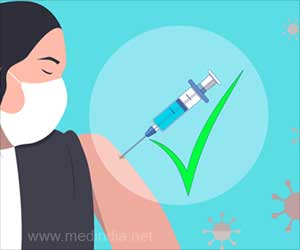
Infants exposed to the Covid-19 virus during gestation may face increased vulnerability to social skill deficits and respiratory issues (1✔ ✔Trusted Source
Association of antenatal or neonatal SARS-COV-2 exposure with developmental and respiratory outcomes, and healthcare usage in early childhood: a national prospective cohort study
).
However, researchers from the University of Bristol, UK noted that the “long-term outcomes” remain unclear. The team enrolled children (96) with and without (243) antenatal or neonatal exposure to SARS-CoV-2 infection.
’
Defining Antenatal and Neonatal SARS-CoV-2 Exposure
They defined antenatal and neonatal SARS-CoV-2 exposure as infants born to mothers hospitalized with confirmed SARS-CoV-2 infection between 14 and 36 weeks gestation and infants admitted to the hospital with confirmed SARS-CoV-2 infection within the first 28 days after birth.
Babies exposed to Covid infection “were at greater risk of delayed social-emotional development, had a greater prevalence of respiratory symptoms and increased health care usage” compared to those who were not exposed, revealed the study published in the journal eClinical Medicine. The researchers speculate that this may “create difficulties later in childhood”.
“Children’s ability to develop positive peer relationships and academic success” may be impacted due to the social-emotional delay in infancy, said Dr Ela Chakkarapani, Associate Professor of Neonatal Neuroscience at the University of Bristol. The researchers called for larger studies and longer-term follow-ups to confirm and understand this risk. Meanwhile, Dr Ela advised concerned parents to check with the doctor on the “lung function” of their kids, if exposed to Covid.
Reference:
- Association of antenatal or neonatal SARS-COV-2 exposure with developmental and respiratory outcomes, and healthcare usage in early childhood: a national prospective cohort study – (https://www.sciencedirect.com/science/article/pii/S2589537024002074)
Source-IANS



